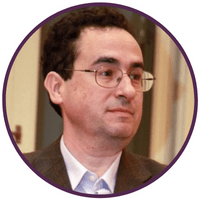Unmet needs in advanced therapy release testing and quality control
The growth of cell therapy around the world means accurate and reliable methods of quantifying dose and circulating cell volume are crucial for ensuring safety and effectiveness. Quantitative PCR (qPCR) is one of the most common quantitation methods used in laboratories today but the sensitivity to operator error and the reliance on the quality of the standard curve mean that some researchers are looking for alternatives. How can developers ensure they are making use of the latest technologies, such as ddPCR, to ensure their quality control and release testing is fit for purpose?
During this webinar, experts in the field will discuss current obstacles and unmet needs associated with advanced therapy release testing and quality control and share their insights into the future.
This webinar was recorded on 9 December 2021.
What will you learn?
- Discuss how droplet digital PCR (ddPCR) could be implemented in the CAR-T manufacturing workflow to provide accurate quantitation and improve quality
- Understand current obstacles and unmet needs associated with advanced therapy release testing and quality control
- Explore accurate and reliable methods of quantifying dose and circulating cell volume for ensuring safety and effectiveness
Who may this interest?
- Researchers and developers of advanced therapies
- Principle scientists responsibe for QC/QA and release testing
- Other stakeholders in developing CAR-T therapies
- Other stakeholders in developing advanced therapies
Speakers
Boris Fehse
Head of Research Cell and Gene Therapy
University Clinical Hospital, Hamburg (Germany)
Graduating from Russian State Medical University in Moscow, with a PhD from University of Hamburg, Prof Fehse has progressed his scientific career within Cell and Gene Therapy as Head of Research in the university. He has previously held many executive positions including President of the German Society of Gene Therapy and is a scientific reviewer for multiple journals.
Lilia Carolina León
Head of Research and Development
Provida Salud Integral
Mesenchymal Stem Cell Bank, Jalisco (México)
Graduated from the University of Guadalajara with a PhD Degree in Biomedical Sciences. Lilia has five years of experience in mesenchymal stem cells culture, implementing quality control tests (purity and potency) for batch release, regulatory affairs in regenerative medicine, and basic research. She is currently developing a protocol to expand human endometrial-derived mesenchymal stem cells (heMSCs) in an animal components-free media and its scaling for clinical use. She is also interested in studying the mechanisms of action of these cells on neurodegenerative diseases, especially in inflammation.
Manel Juan
Head of Immunopathology
Hospital Clínic
(Barcelona, Spain)
In association with


